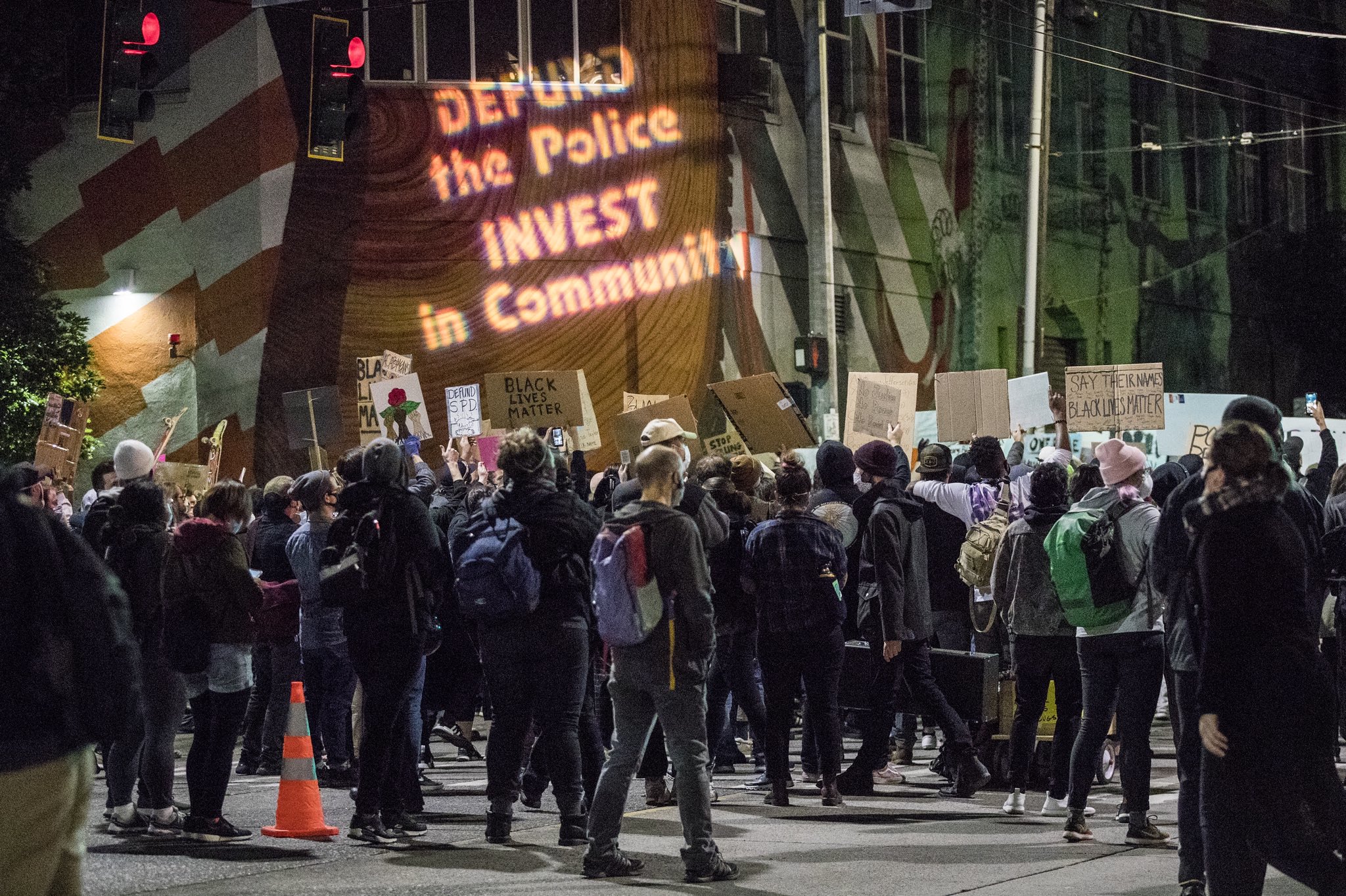“Defund the police” has become one of the slogans of the protests shaking our nation amidst the COVID-19 pandemic. But what does this term truly mean, and could defunding the police be helpful for both the police and the health care community? Here, we define why reallocating police funds to health services could be in the best interest of both parties.
Defunding the police represents a “divest and invest” model: a fraction of the police’s revenue is taken and diverted somewhere else. There is proof of concept that this process works: the police department in Camden, NJ was dissolved and recreated as a smaller force in 2012. By reorganizing the police department and drastically reducing their funding, the city of Camden was able to allocate money towards the partnership between police and social services. This changed the culture of the police in the city; rather than antagonizing one another, residents and officers entered a mutual partnership. From increased hiring of Black and Brown officers to visiting individual homes simply to say hello, this department achieved effective community-oriented policing. As a result, crime decreased 42% over seven years, and the people of Camden felt safer. The point is clear — defunding leads to more effective policing and lower violence.
Furthermore, the COVID-19 pandemic has made it alarmingly clear that our health care system is not funded adequately. As an example, we look at our own community. Our medical school’s free clinic, aptly named Bridge to Care, is located in Prince George’s county in Maryland. The community largely benefits from this clinic location because of the especially high rate of uninsured patients in Prince George’s county. Over the course of this pandemic, Prince George’s county recorded over 17,000 cases, the highest among any county in Maryland. According to the fiscal summary, the approved 2020 budget for Prince George’s county police department is $367,280,300. Unfortunately, the funding for the health department — for a community in dire need of affordable medical care — was merely 25% of that, at only $93,472,500.
Allocating a portion of these funds from the police department to the health department would provide great benefit to the marginalized Black and Brown populations that attend free clinics. The abilities of our free clinic and many others are largely limited by funding. In our case, limited remote electronic medical records access, telemedicine ability, limited public insurance and inadequate supply of personal protective equipment have all significantly slowed down the pace at which we admit and care for patients. Many, if not all, of these issues could be rectified with increased monetary support, which is why we believe that the “divest and invest” model from the police department to health care services could make a meaningful impact on community health and social support.
While health care communities need money to treat physical ailments, there is another aspect where our clinic remains inadequate: mental health. Many patients do not have the means to afford regular visits to mental health professionals. There are compelling reasons to divert police funds into this sector of health care. People with mental illness account for only 3-5% of violent crimes, yet they are ten times more likely to be victims of violence compared to the general population. Specifically, there are numerous reports of people with mental illness being shot and killed by police. Let us examine the NYPD: in 2015, the City Hall established a “crisis intervention training” to educate police officers on methods of de-escalating encounters with mentally ill suspects. There’s significant evidence that officers who undergo such training have reported improved attitudes and reduced stigma. For example, CIT-trained officers are less likely to escalate to the use of force in confrontational encounters.
As of last year, however, just 11,970 of the NYPD’s 36,753 officers have been formally trained in de-escalation, and it is unclear if the remainder will ever receive the necessary training. Only a small portion of the NYPD’s massive funds would be required to address the mental health crisis by hiring mental health professionals in high-need areas. Divesting from law enforcement will not necessarily hurt police departments; however, investing these funds in mental health and medical services could drastically improve health care outcomes.
With the recent news revolving around the murders of Ahmaud Arbery, Breonna Taylor and George Floyd, a significant portion of the population is distressed and threatened by those who are meant to protect us. We believe that to see the necessary changes nationally, we need to counter the funding imbalances between police spending and health care budgets. With targeted interventions such as funding free clinics or diverting resources towards mental health, the United States may be able to address both its police problems and the health crises affecting its most vulnerable neighborhoods.
Image credit: Defund the Police projections in Seattle (CC BY 2.0) by Backbone Campaign

